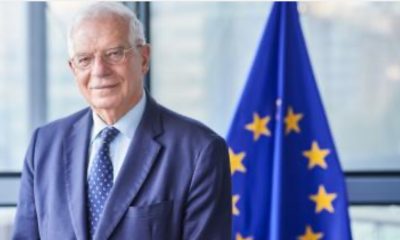Accession
Opinion: Western responses to Ukraine crisis: Policy options

 Chatham House convened a special round table on 5 March with a group of leading experts on Russia and Ukraine, and on the West’s relations with those countries, in order to consider options that are now available to the West in response to Russia’s actions in Crimea and other parts of Ukraine.
Chatham House convened a special round table on 5 March with a group of leading experts on Russia and Ukraine, and on the West’s relations with those countries, in order to consider options that are now available to the West in response to Russia’s actions in Crimea and other parts of Ukraine.
Key points
The most effective near-term pressure that can be exerted on Russia will be financial and economic. Much of President Vladimir Putin’s power is predicated upon Russia’s financial stability.
Freezing the assets of and denying visas to elite Russians suspected of money laundering or involved in the actions against Ukraine are likely to be measures that will influence Russian thinking and, possibly, the government’s behaviour. While retaliatory Russian measures are possible, senior Russians need to travel to the West more than those in the West need to travel to Russia.
It is important that the West ramp up immediately its counter-narrative to the Russian propaganda operation. Statements by President Putin and other Russian leaders, and reporting by much of the Russian media, about Ukrainian refugees fleeing to Russia, violence in eastern Ukraine and there being no Russian troops in Crimea can easily be exposed as lies. This should be done publicly, forcefully and immediately.
The EU should convey the message to Russian energy companies that ‘business as usual’ is not an option while intervention in Ukraine continues. Overall, the West is more energy-resilient today than in the past decade. Its process of diversifying its energy imports away from an over-reliance on Russia continues, leading to a more interdependent than dependent relationship.
The EU must not go back on its commitment to the Association Agreement with Ukraine. Conclusion of the agreement and the Deep and Comprehensive Free Trade Agreement (DCFTA) with a newly elected government is essential for Ukraine’s future political as well as economic health.
Share this article:
-

 Conferences3 days ago
Conferences3 days agoNatCon’s on-off conference halted by Brussels police
-

 Mass surveillance4 days ago
Mass surveillance4 days agoLeak: EU interior ministers want to exempt themselves from chat control bulk scanning of private messages
-

 Conferences4 days ago
Conferences4 days agoNatCon conference to go ahead at new Brussels venue
-

 European External Action Service (EAAS)4 days ago
European External Action Service (EAAS)4 days agoBorrell writes his job description



























